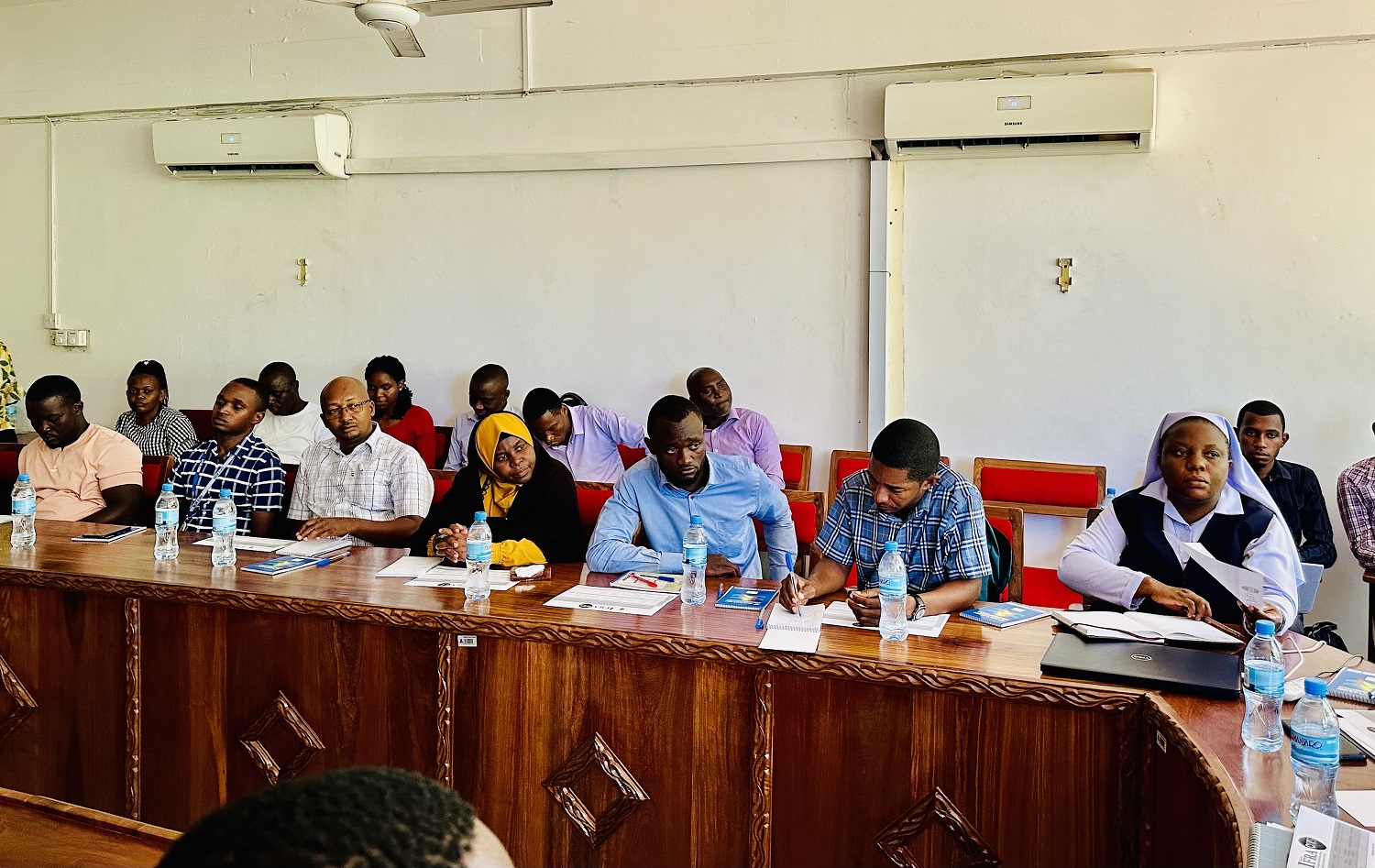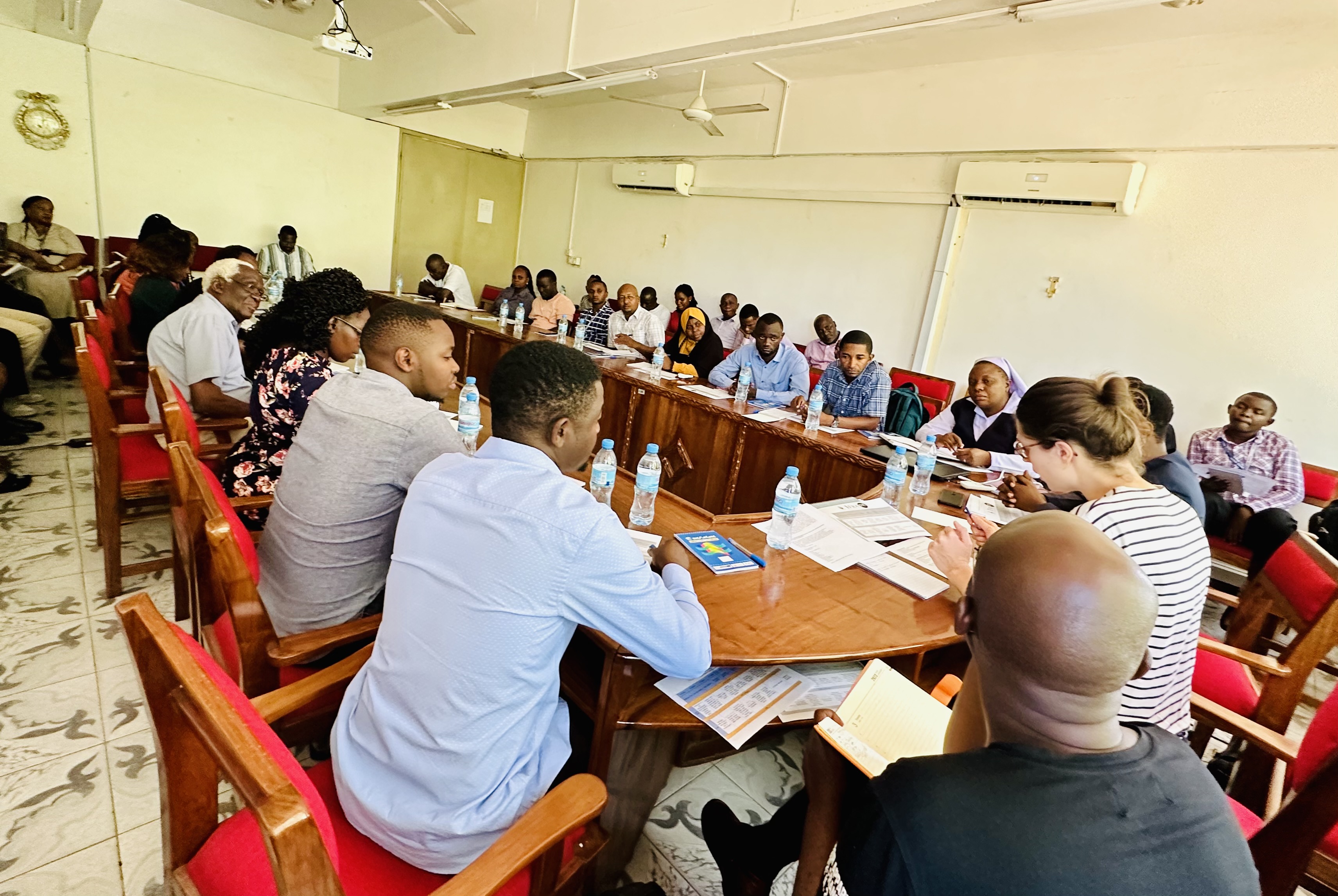UDSM launches methodological school on slavery and post-slavery in East Africa
By Zamda George, CMU
The University of Dar es Salaam College of Humanities, through its History Department, on October, 2023 launched its Methodological School on slavery and post-slavery, the first of its kind in Tanzania and East Africa.
Inaugurated by two renowned historians, Dr. Clélia Coret from the French Institute for Research in Africa (IFRA), Nairobi, Kenya, and Dr. Salvatory S. Nyanto, from UDSM History Department the school is designed to tackle the less-explored history of slavery and its impact on modern East African societies,
According to Dr. Nyanto, the Methodological School would run a series of lectures and workshops from October 26 to November 6, with a weekend short break.
The school commenced with a presentation delivered by Dr. Clélia Coret, a historian specialized in slavery and post-slavery on the Kenyan coast, who stressed on the significance of the Methodological School, especially its in examining slavery within the global context and compare its manifestations in various regions.
She highlighted the importance of addressing research themes that have recently gained momentum, such as social stigmatization inherited from slavery, gender perspectives, and museography of slavery.
“The aim is to encourage new research by facilitating theoretical and methodological transfers with a view to acquiring new theoretical and practical knowledge”, she said.
Dr. Coret pointed out that while many parts of the world had made significant progress in understanding the legacies of slavery, East Africa remains relatively understudied. Despite pioneering research in the region by scholars like John Iliffe, Frederick Cooper, Jonathon Glassman, and Marcia Wright, “the post-slavery period is only now beginning to receive attention”.
She said that the European SLAFNET project under Prof. Marie-Pierre Ballarin and the ERC-project, "The Aftermath of Slavery in East Africa," directed by Prof. Felicitas Becker, have played crucial roles in supporting this research dynamism and facilitating collaboration between African and European researchers.
“Today, this research needs to be reinjected locally in East Africa and translated into training courses for African students”, she emphasized.
41 applications
Dr. Coret also pointed out that the Methodological School received 41 applications for participation, with 29 applicants (15 male and 14 female participants) selected for this year's program. These attendees come from various backgrounds, with. They represent Tanzania (17 attendees), Kenya (8), Uganda (2), and West Africa (2).
“Their academic disciplines vary, with 19 students specializing in history, 5 in archaeology, 2 in religious studies, 1 in Kiswahili studies, 1 in tourism, and 1 in psychology. The selection process aimed to create a diverse and interdisciplinary group of participants”, she said.
Challenges of studying slavery
Meanwhile, Dr. Salvatory Nyanto noted the challenges of studying slavery and post-slavery in East Africa. He acknowledged that the legacy of slavery was still regarded as a matter of shame and that ex-slaves' disappearance as a social category required lifelong efforts.
He also highlighted how slavery still affected societal perceptions of the enslaved in mainland East Africa, where they are often seen as weak, strangers, and second-class citizens.
Dr. Nyanto discussed the various sources available for studying slavery and post-slavery, including family stories, missionary records, and government archives. “These sources offer valuable insights into the experiences of former slaves and their lives after slavery, helping us understand their place in society, gender dynamics, and marginalization”.
He stressed that the Dar es Salaam Methodological School aimed to reinvigorate the study of slavery and post-slavery in modern African history by focusing on sources and methods. It also sought to address the practical and ethical challenges of researching and discussing this painful aspect of history.
“The school brings together students and academics from institutions in East and Central Africa to explore the sources, methods, and challenges of researching slavery in the twenty-first century”, he said.
The launch of the Methodological School at the University of Dar es Salaam marks a significant step toward shedding light on the often-neglected history of slavery and its enduring impact on East African societies. It is a testament to the university's commitment to promoting research and education on important historical issues. The school is expected to have a profound and lasting impact on the study of slavery and post-slavery in the region.
Other News
Sun, 10.Nov.2024 : UDSM na UH vyafanikisha upatikanaji wa Kamusi ya Kihispania-KiswahiliFri, 08.Nov.2024 : UDASA Bonanza 2024 picks up vibes
Fri, 01.Nov.2024 : Robotics Bootcamp attracts hundreds of young talents to UDSM, sparks passion for Physics and Technology
Wed, 30.Oct.2024 : Dr. Jackson Justo drives AI-powered energy innovations for sustainable future
Thu, 24.Oct.2024 : Partnership with NMB promises innovation, talent development and digital transformation at UDSM
Wed, 09.Oct.2024 : Economics don Dr. Innocensia John is named among 2024 top Agri-Food Pioneers
Tue, 08.Oct.2024 : School of Mines and Geosciences gears up for Helium exploration in Tanzania
Sat, 05.Oct.2024 : UDSM students excel in 2024 NGEA Award Regional Challenge





